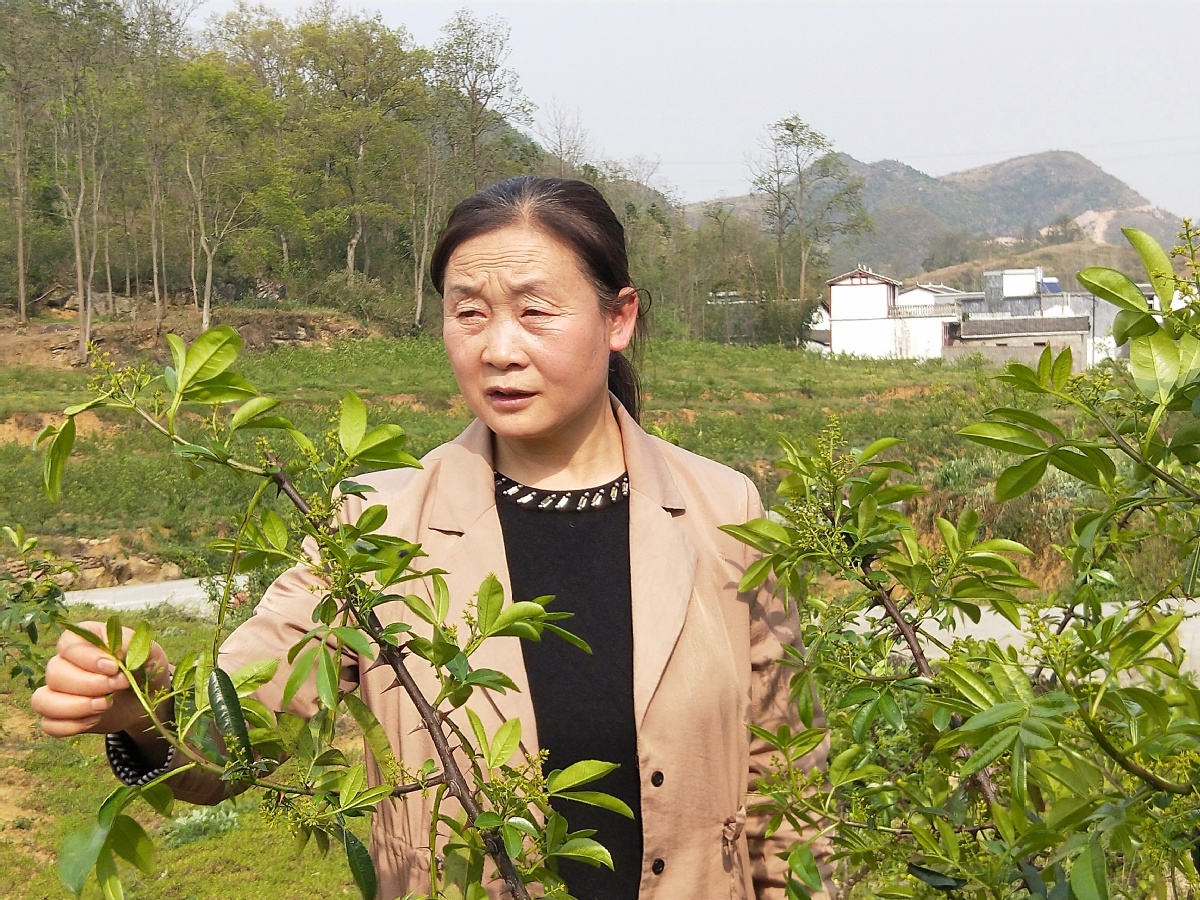Village set to embrace era of rising incomes


Twenty years ago, Yu Bili set her mind to developing Zheguyuan village, a cause that has lasted to this day. The village's outlook had to be changed and new opportunities embraced to improve living conditions.
Zheguyuan is a small village that lies in Xingren county, Southwest China's Guizhou province. Although not far from the town center, it was an impoverished village that had no basic water or power supply until earlier this century.
Like many 30-year-olds from the area at that time, Yu left in 1998 to seek job opportunities in the cities, but she soon returned.
"I saw how developed the outside world is, and wanted the same for my hometown, so I thought of using our land resources to develop agriculture," Yu says.
Yu was elected as the Party chief of the village in 2002. As the first female leader of the village, she faced a lot of pressure because of a traditional mindset among some villagers.
She, along with other village cadres, started out by improving local infrastructure, before developing businesses.
"We focused on infrastructure construction by building roads and providing water. When people saw the substantial improvements to the village, they gradually recognized our effort and work," Yu says.
She then encouraged the villagers to grow vegetables on a larger scale rather than sticking to the conventional practices of growing crops for a single household. Knowing about the villagers' doubts, Yu was always the first to set an example.
In 2008, Yu made a loan of 20,000 yuan ($2,808) to build six greenhouses, planting a wide range of vegetables including tomatoes, cabbage and eggplants, yielding more than 60,000 yuan in one year.
The villagers then started to follow Yu's example and changed their own living conditions, He Dacui being one of them.
"My family used to be very poor. When Yu called for us to grow vegetables, I rented some land and started to grow varied seasonal vegetables. We now earn around 100,000 yuan yearly simply from growing vegetables. Our living conditions have greatly improved," He says.
"One thing about her that impresses me the most is that she has been sponsoring an orphan in the village for education, from primary school to university. She never asked anything in return."
Apart from He, several other villagers described Yu as a responsible and helpful leader.
"She dares to envision and experiment with new projects, and always seeks the best for the villagers," Cen Jian, another villager, says. "When developing the vegetable and pepper industries, some villagers were not willing to cooperate, and she patiently explained to them and changed their mindset."
In 2017, the village became one of the first in the county to be taken off the list of impoverished villages, and by the end of 2019, all households in the village had shaken off poverty and had access to water, electricity and communication services.
After being elected a deputy to the 13th National People's Congress in 2018, Yu says that she feels even more responsible to serve the people and improve their hometown.
"Every year we pay door-to-door visits, collect the people's feedback, and learn about their problems. We also go on field trips to other cities and provinces to learn from their experience and find out what we are lacking," Yu says.
At this year's two sessions, Yu's suggestions still centered on rural vitalization, including sewage treatment, high-speed railway and reservoir construction, and local medical services.
The population in the village composes mainly of Bouyei and Miao ethnic groups, and Yu aims to retain and promote the village's unique ethnic culture in future development.
"We have our unique ethnic culture, with our local specialties, our clothes and our customs. Now we're developing tourism based on this cultural background," Yu says.
"We also have beautiful scenery and rich natural resources, suitable for producing unpolluted vegetable brands, developing agritourism and ethnic bed-and-breakfast business."
Contact the writers at chengyuezhu@chinadaily.com.cn




































